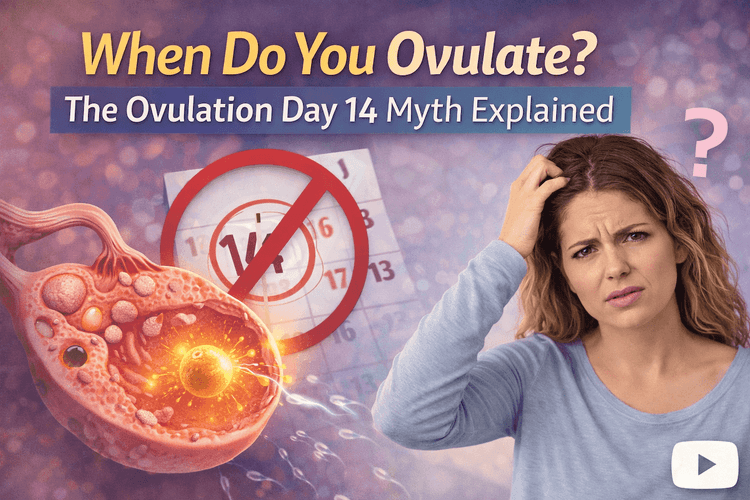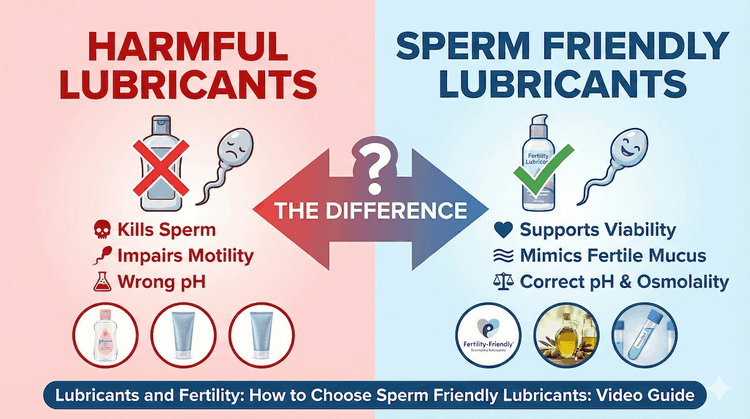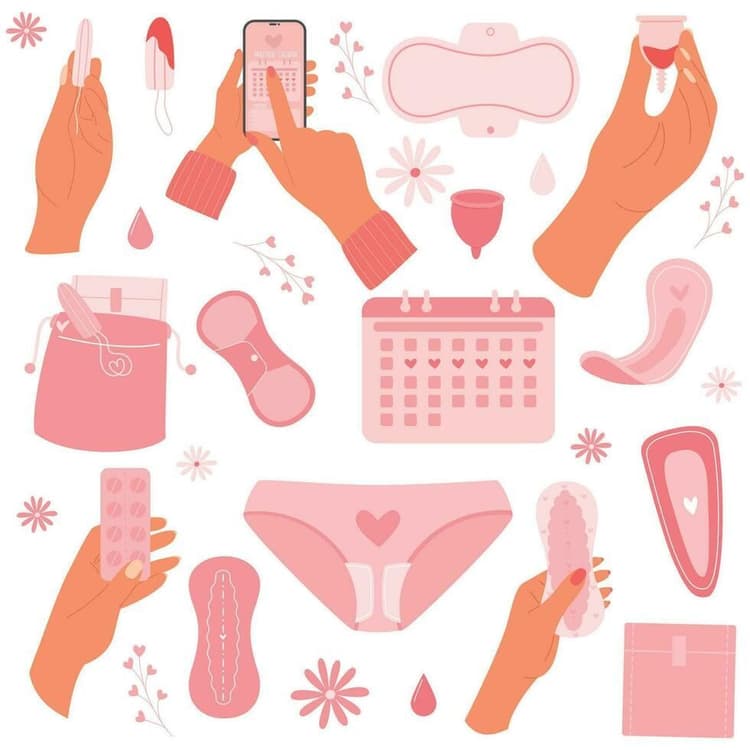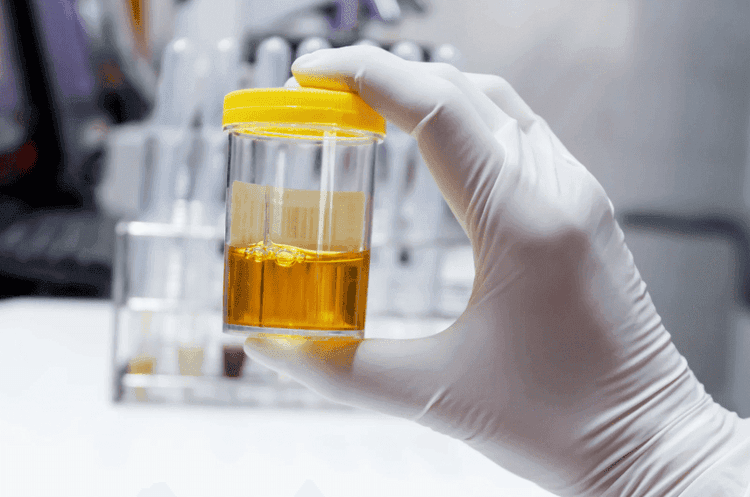Muchas mujeres experimentan problemas como sequedad, infecciones e irritación, a menudo sin darse cuenta de que los hábitos diarios influyen significativamente en la salud vaginal. Un entorno vaginal equilibrado es crucial para prevenir infecciones, mantener la comodidad y favorecer la salud reproductiva. Comprender cómo mejorar la salud vaginal mediante cambios en la dieta, la higiene y el estilo de vida puede ayudar a las mujeres a sentirse lo mejor posible cada día.
A continuación, te presentamos formas científicamente probadas de mantener un entorno vaginal sano, incluidos consejos sobre qué alimentos son buenos para equilibrar el pH, buenas vitaminas para la salud vaginal y frutas para la salud vaginal.
1. Mantén un pH vaginal saludable
El entorno vaginal es naturalmente ácido, con un pH que oscila entre 3,8 y 4,5. Esta acidez es mantenida por bacterias beneficiosas, principalmente lactobacilos, que crean un entorno que impide el crecimiento excesivo de microorganismos nocivos. Las alteraciones de este equilibrio pueden provocar vaginosis bacteriana, infecciones por hongos o malestar general.
Formas de apoyar esto:
- Evita las duchas vaginales y los jabones fuertes – Muchos productos de higiene femenina contienen fragancias y sustancias químicas fuertes que alteran el equilibrio bacteriano natural. En su lugar, utiliza jabones suaves sin perfume y evita la limpieza interna.
- Usa tejidos transpirables – La ropa interior de algodón permite la circulación del aire, evitando la acumulación excesiva de humedad que puede favorecer la proliferación bacteriana.
- Utiliza productos con un pH equilibrado – Si utilizas lubricantes o limpiadores, opta por los que tengan un pH equilibrado y no contengan perfume para evitar irritaciones y desequilibrios microbianos.
- Limita la exposición a irritantes – Los detergentes, las toallitas perfumadas e incluso algunos papeles higiénicos contienen sustancias químicas que pueden alterar el entorno vaginal.
2. Favorece la salud vaginal con la dieta
Lo que comes afecta directamente a tu salud vaginal al influir en tu microbioma y en tu equilibrio hormonal. Ciertos nutrientes y alimentos pueden ayudar a mantener el buen funcionamiento del aparato reproductor, manteniendo hidratados los tejidos vaginales y favoreciendo el crecimiento de bacterias beneficiosas.
Cómo lograrlo:
- Consume probióticos y prebióticos - Los probióticos, presentes en el yogur, el kéfir y los alimentos fermentados, introducen bacterias beneficiosas en tu organismo, mientras que los prebióticos (presentes en el ajo, la cebolla y el plátano) alimentan a estas bacterias buenas y favorecen su crecimiento.
- Mantente hidratada - Beber mucha agua mantiene hidratados los tejidos vaginales, evitando la sequedad y las molestias.
- Incorpora alimentos ricos en antioxidantes - Las vitaminas C y E favorecen la función inmunitaria y protegen los tejidos vaginales del estrés oxidativo. Los cítricos, las bayas y los frutos secos son fuentes estupendas.
- Ingiere ácidos grasos omega-3 - Presentes en el pescado graso, las semillas de lino y las nueces, los omega-3 ayudan a reducir la inflamación y favorecen un flujo sanguíneo sano a los tejidos vaginales.
- Elige alimentos que favorezcan el equilibrio hormonal – Alimentos como las semillas de lino y los cereales integrales contienen fitoestrógenos que pueden ayudar a mantener la humedad vaginal, sobre todo en las mujeres menopáusicas.
3. Practica sexo seguro
La actividad sexual puede influir en la salud vaginal al introducir nuevas bacterias y afectar al microbioma natural. El sexo sin protección aumenta el riesgo de infecciones, mientras que ciertos productos sexuales pueden causar irritación.
Formas de apoyar esto:
- Usa protección - Los preservativos reducen el riesgo de infecciones de transmisión sexual (ITS) y ayudan a mantener el equilibrio microbiano limitando la exposición a bacterias externas.
- Mantén la higiene después del sexo – Orinar después del coito puede ayudar a eliminar las bacterias que podrían causar infecciones del tracto urinario (ITU). Lavar la zona genital externa con agua también puede ayudar a reducir la irritación.
- Opta por lubricantes con pH adecuado – Algunos lubricantes contienen ingredientes que alteran el pH vaginal. Busca lubricantes de base acuosa y pH equilibrado, sin glicerina ni parabenos.
- Ten cuidado con los productos para la salud sexual – Las toallitas perfumadas, los lubricantes aromatizados y los espermicidas pueden alterar el microbioma vaginal y provocar irritación e infecciones.
4. Favorece el equilibrio hormonal
Las hormonas, en particular los estrógenos, desempeñan un papel importante en la salud vaginal. Los estrógenos ayudan a mantener la lubricación vaginal, la elasticidad y el equilibrio microbiano. Las fluctuaciones hormonales durante la menstruación, el embarazo, la menopausia o el uso de anticonceptivos pueden afectar al confort vaginal.
¿Qué puedes hacer?
- Incorpora fitoestrógenos a tu dieta - Alimentos como las semillas de lino y los garbanzos contienen estrógenos de origen vegetal que pueden contribuir al equilibrio hormonal.
- Ejercítate con regularidad – La actividad física mejora la circulación, que es esencial para mantener la salud vaginal y reducir la inflamación.
- Controla los niveles de estrés – El estrés crónico aumenta los niveles de cortisol, lo que puede interferir en la producción hormonal y afectar negativamente a la salud vaginal.
- Duerme lo suficiente – Un sueño de calidad favorece la regulación hormonal y la salud reproductiva en general.
5. Sé prudente con el uso de antibióticos
Aunque los antibióticos son esenciales para tratar las infecciones bacterianas, también eliminan las bacterias beneficiosas del intestino y del microbioma vaginal. El uso frecuente de antibióticos puede provocar infecciones recurrentes por hongos y desequilibrios bacterianos. Debes hablar con un profesional sanitario sobre el uso de antibióticos en general y no debes evitarlos sin la aprobación de tu médico.
Formas de apoyar esto:
- Utiliza antibióticos sólo cuando sea necesario - Evita tomar antibióticos a menos que te los recete un médico, y completa siempre el tratamiento completo cuando sea necesario.
- Recupera las bacterias beneficiosas – Después de tomar antibióticos, aumenta la ingesta de alimentos ricos en probióticos o considera la posibilidad de tomar un suplemento probiótico para restablecer el equilibrio.
- Vigila tu microbioma vaginal - Si sufres infecciones con frecuencia tras el uso de antibióticos, consulta a un profesional sanitario para evaluar posibles desequilibrios.
6. Elige los productos menstruales adecuados
Los productos de higiene menstrual pueden influir en la salud vaginal. Algunos productos contienen sustancias químicas o materiales sintéticos que pueden causar irritación o alterar el entorno vaginal.
Formas de apoyar esto:
- Opta por tampones y compresas ecológicos o sin perfume - Estos productos no contienen colorantes ni perfumes sintéticos que puedan causar irritación.
- Cambia los productos con regularidad – Evita dejar puestos los tampones o las copas menstruales durante periodos prolongados para evitar la proliferación bacteriana y las infecciones.
- Considera los productos menstruales reutilizables - Las copas menstruales y las compresas de tela, si se limpian adecuadamente, pueden ser una alternativa más sana a los productos desechables.
7. Prioriza las revisiones ginecológicas periódicas
Las visitas rutinarias al ginecólogo son esenciales para controlar la salud vaginal y reproductiva. La detección precoz de infecciones, ITS o desequilibrios hormonales puede evitar complicaciones a largo plazo.
Formas de apoyar esto:
- Programa exámenes anuales - Las revisiones periódicas permiten una intervención precoz si surge algún problema.
- Comenta cualquier síntoma inusual – Si experimentas picores persistentes, flujo inusual o molestias, consulta a un médico inmediatamente.
- Mantente al día con las citologías y las pruebas de detección de ITS – Estas pruebas ayudan a detectar precozmente infecciones o cambios precancerosos.
Por qué es importante la salud vaginal
Un microbioma vaginal bien mantenido favorece la salud general al prevenir las infecciones, reducir las molestias y promover el bienestar reproductivo. Incorporando estas estrategias de eficacia probada, las mujeres pueden mejorar su salud vaginal de forma natural y mantener el bienestar a largo plazo.
Hacer cambios sencillos en el estilo de vida, desde comer los alimentos adecuados hasta practicar una buena higiene, puede tener un impacto significativo en la salud vaginal. Tomando medidas proactivas, las mujeres pueden disfrutar cada día de mayor comodidad, confianza y bienestar.




















